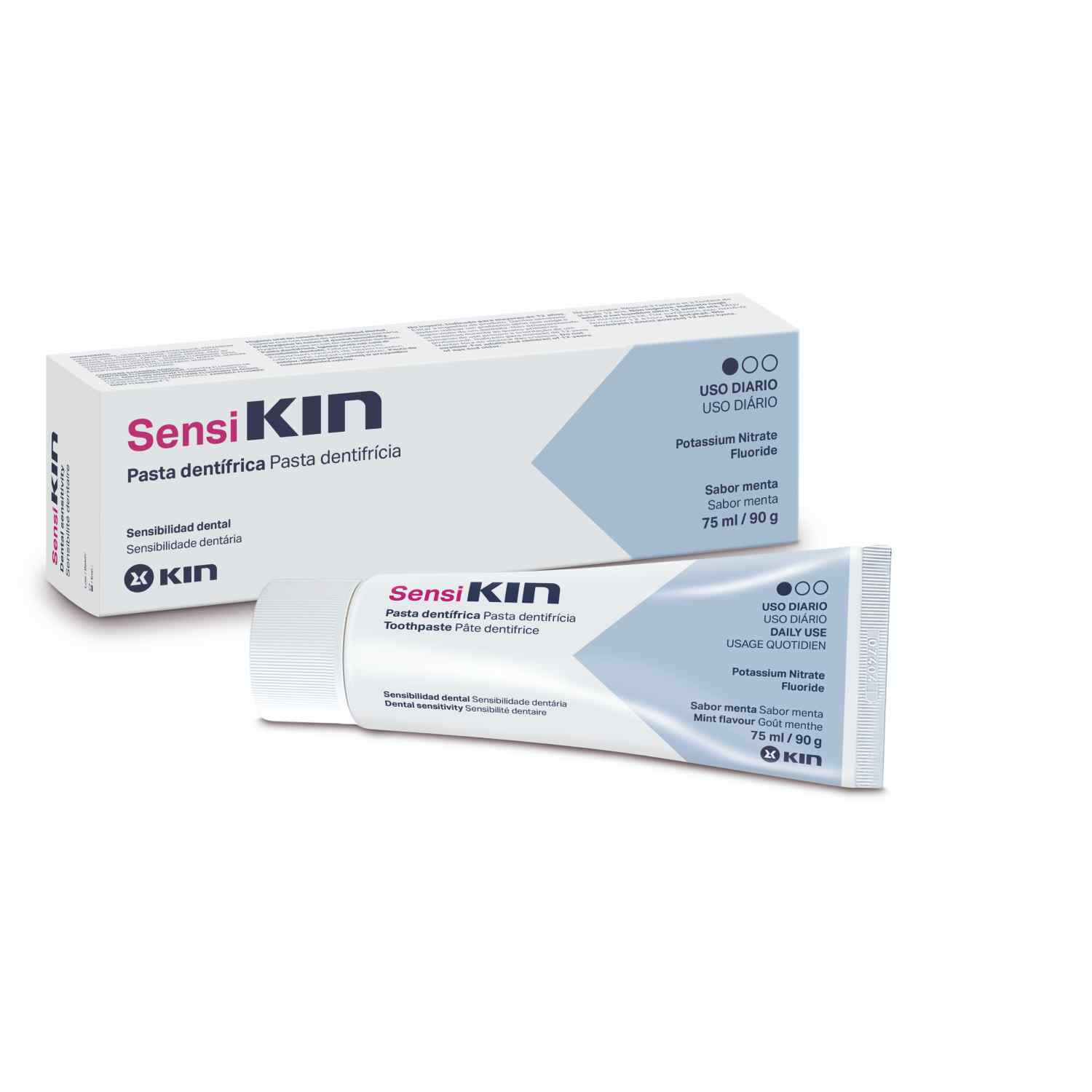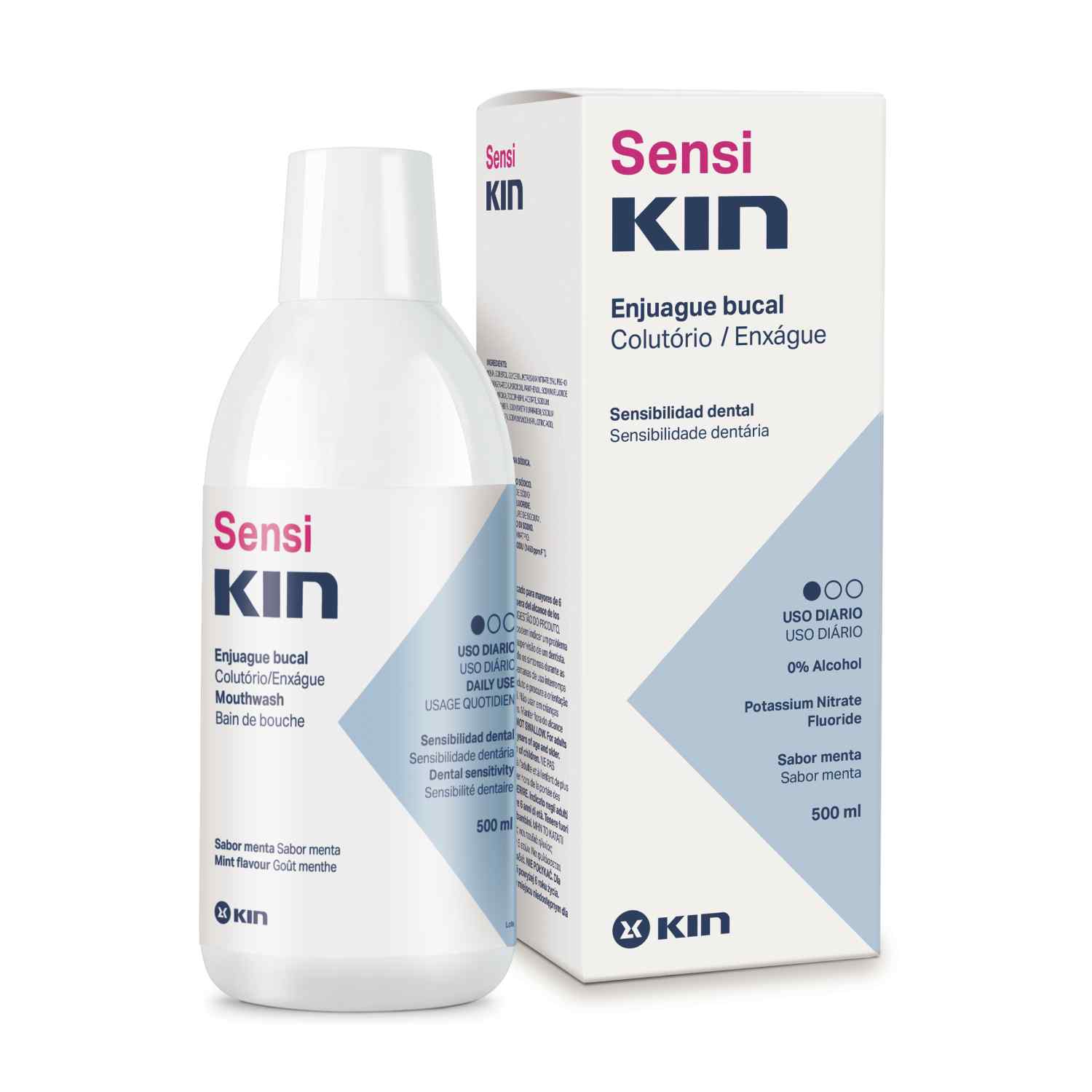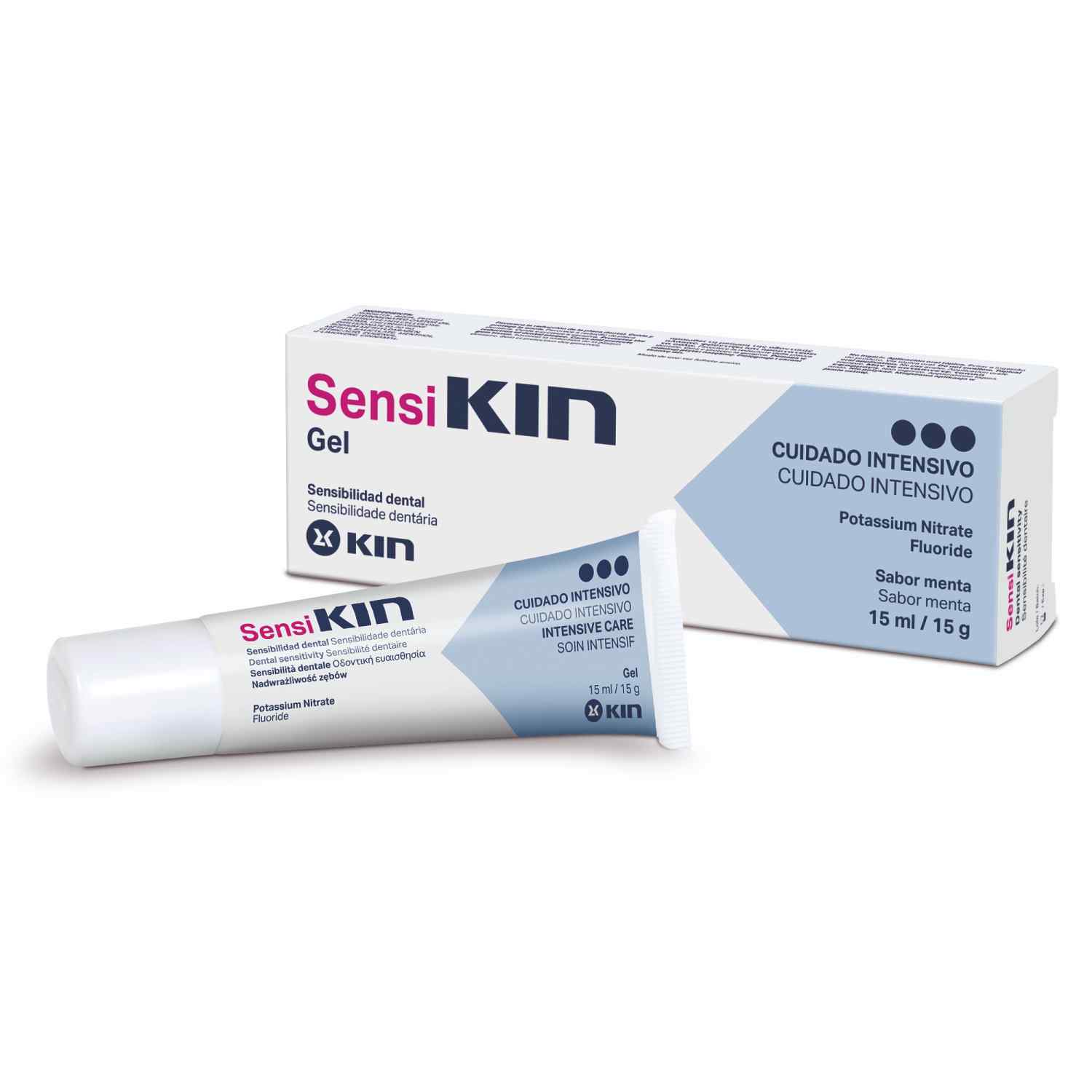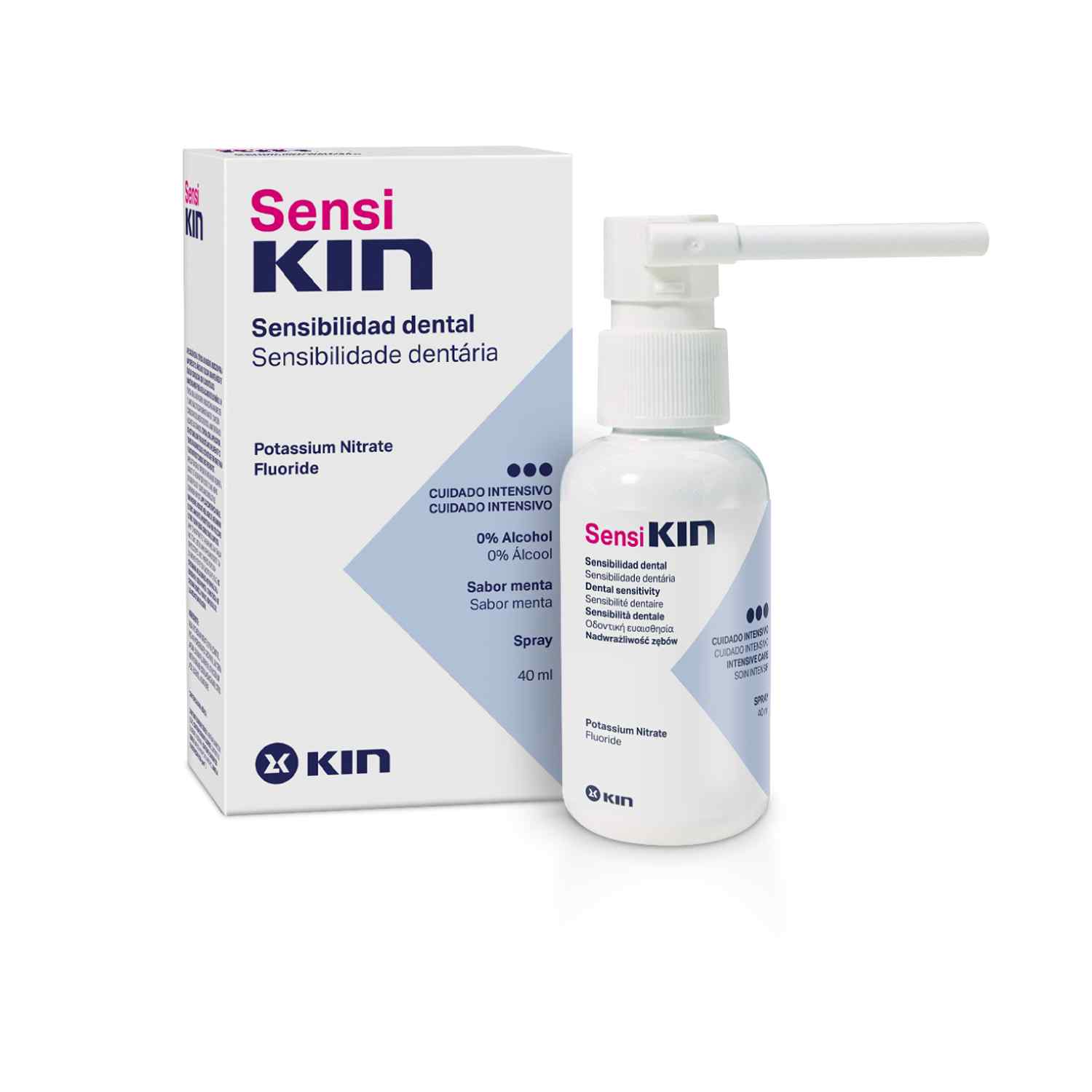Tooth sensitivity is an oral health problem that affects a large part of the population. Many patients who suffer from it suffer in silence, mainly because they are unaware of the existence of effective treatments to eliminate or improve the associated symptoms. Find out how to tackle dental hypersensitivity at its root.
KIN CONTENT GUIDES
Tooth sensitivity guide
Table of Contents
- 1. What is tooth sensitivity?
- 2. Origin of tooth sensitivity
- 3. Why do I have sensitive teeth?
- 4.
- 5. Acidic Diet and Drinks
- 6. Oral pathologies
- 7. Dental Treatments
- 8. General pathologies
- 9. Prevention of Tooth Sensitivity
- 10. Treatment for Sensitive Teeth
- 11. Ambulatory Measures
- 12. Treatments at the dental clinic

1. What is tooth sensitivity?
Tooth sensitivity is the pain or discomfort perceived in the tooth after exposure to an external stimulus. It is a fairly common pathology in adults from the age of 25 onwards, although it can occur at any age depending on the associated causes.
The pain perceived by the person suffering from hypersensitive teeth is of short duration, but very intense. It appears in response to different thermal stimuli such as cold or heat, chemical stimuli such as acidity, or tactile stimuli such as a simple touch on the affected tooth in the most extreme cases.
Read more
2. Origin of tooth sensitivity
The main function of tooth enamel is to protect the integrity of the tooth. Just below the enamel layer is dentine, a tissue that contains a large number of nerve connections and is less resistant to the action of oral bacteria.
When the dentine is exposed, either by the retraction of the gum that protects it at the base of the tooth, or by the loss of enamel thickness, external stimuli can reach the nerve endings through tiny tubules that connect the external part of the tooth with the internal part. This feeling of hypersensitivity is a wake-up call when the tooth loses some of its natural protection.
Read more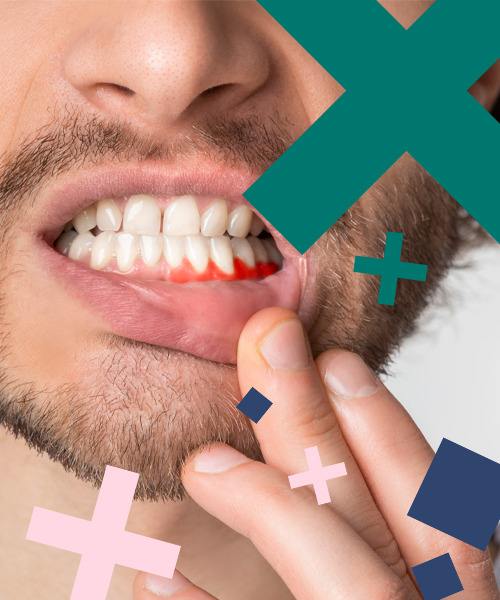
3. Why do I have sensitive teeth?
There are two main reasons why dentine is exposed to the stimuli associated with sensitive teeth: gum recession and enamel wear. These problems can occur for a variety of reasons, most of which are related to unhealthy habits.
Your KIN must-haves:
Find us at:
You can buy our products in your nearest pharmacy.
Find us in your trusted online store.

5. Acidic Diet and Drinks
Frequent ingestion of acidic foods and beverages causes progressive wear of the tooth enamel. Due to the pH of these foods, erosion of the tooth enamel occurs, leaving the dentine gradually exposed.
What are the foods that promote tooth sensitivity? Acidic fruits and citrus fruits, plain yoghurt, tea, wine and soft drinks are some of the most common.

6. Oral pathologies
Certain oral pathologies such as bruxism favour tooth enamel wear. As friction occurs between teeth during grinding, the integrity of the enamel is often affected, thinning the layer or causing fractures.
Other oral pathologies that can cause tooth sensitivity are the presence of caries, broken or chipped teeth due to blows and impacts, worn fillings or a progressive loss of tooth enamel, often associated with poor brushing technique, which exposes part of the dentine.

7. Dental Treatments
Certain treatments performed at the dentist's office can cause tooth sensitivity. Some examples are periodontal surgery, root scaling or tooth cleaning. Also fillings or endodontic treatment that cause mild gum recession.
Increased tooth sensitivity is often reported in connection with tooth whitening treatments. However, this hypersensitivity is a temporary symptom that subsides within a few days.
Read more
8. General pathologies
Patients with pathologies involving stomach reflux and heartburn may suffer from tooth sensitivity. Some cases are gastric ulcer, bulimia and other eating disorders.
When stomach acids are regurgitated into the oral cavity, they act by affecting the integrity of tooth enamel and cause gum irritation. Their continued presence could have very detrimental effects on oral health, increasing hypersensitivity to all kinds of thermal and chemical stimuli in a large part of the teeth.
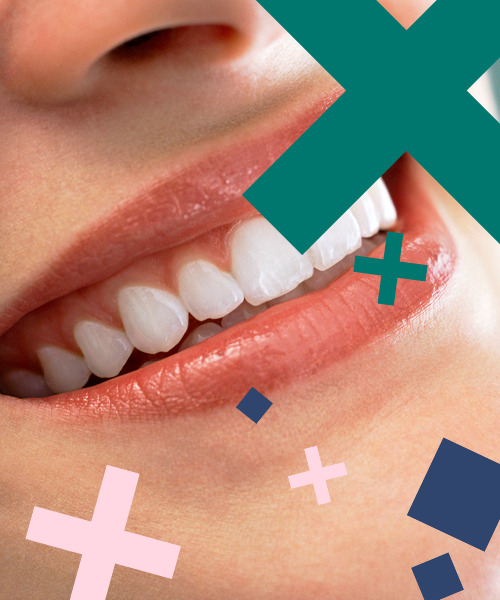
9. Prevention of Tooth Sensitivity
Before treating sensitivity, the best remedy is good prevention. It is therefore of utmost importance to care for the integrity of the tooth enamel and to maintain healthy gums, thus ensuring the natural defences of the teeth.
Dental experts recommend following good eating habits to prevent tooth sensitivity. Proper daily brushing using the right accessories and oral hygiene products are also the best remedy, as well as early diagnosis of any health problems that directly or indirectly affect the integrity of the teeth.

10. Treatment for Sensitive Teeth
Tooth sensitivity is very easy to treat. The first step is to make a good diagnosis by the dentist, thus detecting the problem that causes it in order to choose the most suitable treatment.
Depending on the type and level of tooth sensitivity, there are some treatments that can be easily followed at home and others that are applied directly in the clinic. Knowing what the treatments for dental hypersensitivity are helps to opt for the most appropriate solution.
Find your nearest KIN pharmacy

11. Ambulatory Measures
One of the simplest ways to improve dentin hypersensitivity is the use of toothpastes and mouthwashes to strengthen tooth enamel. Formulated with specific ingredients, these tooth sensitivity products remineralise the tooth and protect the gingival tissue.
On the other hand, there are desensitising toothpastes and mouthwashes that instantly relieve dental hypersensitivity to cold or heat, improving the condition of teeth with daily use.

12. Treatments at the dental clinic
In addition to these oral care and hygiene products, there are some dental techniques aimed at preventing the stimuli that cause discomfort from penetrating through the dentine tubules.
Among them, the most commonly used treatments in the dental clinic are laser desensitisation or desensitisation with varnish. In both cases, recrystallisation of the dentine is achieved, covering the dentinal tubules to protect and prevent tooth sensitivity.

